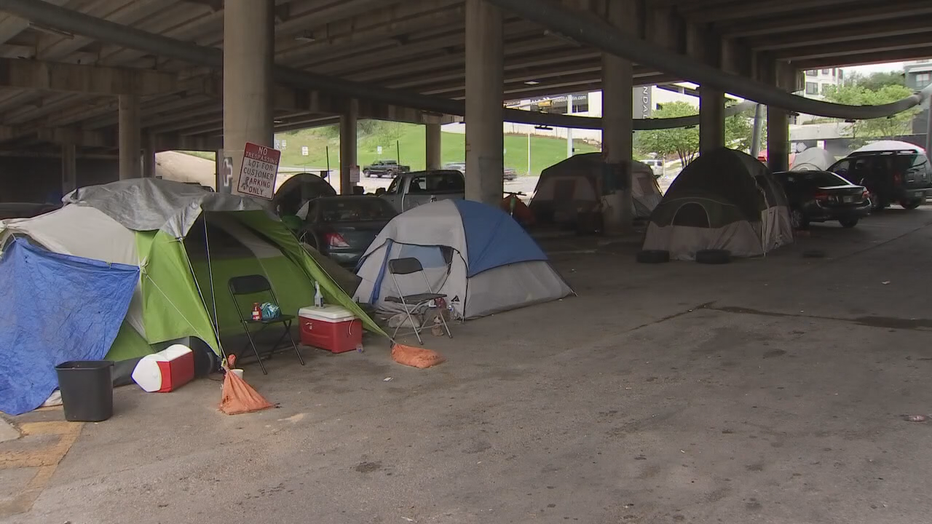Dallas City Council expected to approve $2.3M to fund 16 more homeless outreach workers
Dallas expected to fund more homeless outreach
The Dallas City Council is expected to approve a $2.3 million contract to expand homeless outreach services with Housing Forward, the organization that replaced the Metro Dallas Housing Alliance. It says it is making significant process, although it is slower than everyone would like.
DALLAS - The Dallas City Council is expected to vote Wednesday to fund 16 more homeless outreach workers.
This is a recommendation that came from a new report on the city's homeless problem.

The Dallas City Council is expected to approve a $2.3 million contract to expand homeless outreach services with Housing Forward, the organization that replaced the Metro Dallas Housing Alliance. It says it is making significant process, although it is slower than everyone would like.
Housing Forward Chair Peter Brodsky credited the reduction of homelessness in Dallas to a significant amount of federal money from the American Rescue Plan Act, known as ARPA, as well as an overhaul of the umbrella organization that coordinates care for the homeless across dozens of different non-profits.
"Working together as a community much more effectively than ever have," he said.
But despite progress, Brodsky admits there is still so much more to do.
"There is no magic bullet, no one thing that will make it all better," he said. "It will take a combination of strategies. That’s why we recommended so many in our report."
Featured
Dallas weather: Organization looks to get homeless off the street during dangerous cold
Members of the homeless ministry Our Calling spent the day on the street of Dallas trying to get folks to come inside.
Councilwoman Gay Donnell Willis pointed out the most obvious problem most people see: the unsheltered homeless in encampments.
"What we have in the meantime are people being warehoused under overpasses and Parkland," she said. "I know it is free. You bring up the need for temporary shelter. I don't love the shelter idea."
Brodsky pointed out one of the main reasons people are shelter resistant.
"There are a lot of people experiencing homelessness with drug habits. They cannot go to congregant shelters because of the rules. If you really want to get people off the streets, you may want to consider low-barrier shelters where drug use is allowed," he said. "That is a very controversial idea. I’m not here to recommend it, but if we have to get people off the streets no matter what, that may need to be on the menu of things we consider."
Brodsky said one thing that can't be considered is sanctioned encampments, the type of open-air sheltering that has been polarizing in communities like Phoenix and San Francisco.
"Every instance of a place where people were encouraged to go to pitch their tent cordon them off put it here has ended in what was described in every place we interviewed as a humanitarian crisis," he said. "When you concentrate that level of mental illness, that level of drug use, that level of poverty into a place with no restroom and no electricity, it becomes the city's responsibility. It’s crime-ridden. It can become a nightmare."
The Hope Task Force says 95% of the homeless living in encampments want to go to permanent housing.
The Housing Forward interim CEO says adding 16 outreach workers will help connect more people living outside with homes.


